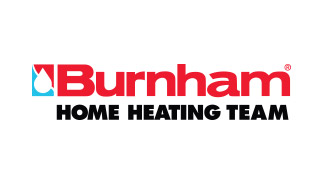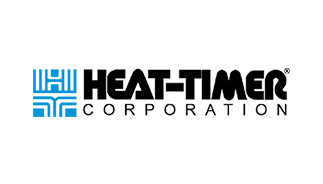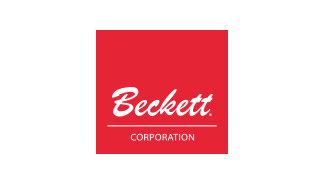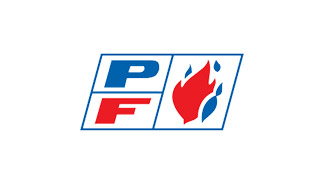Published on
December 16th, 2021How Long Does a Commercial Boiler Last? How to Extend the Lifespan and Know When It’s Time for a New One
There’s no doubt that your commercial boiler is key to your tenants’ comfort and happiness (and therefore, indirectly, yours). But if your boiler is aging or has been on the fritz lately, you may have wondered, “How long does a commercial boiler last?” The answer is that it varies, depending on your unique situation.
Let’s break that down a little further so you can see if your commercial boiler might be close to retirement. In this post, Calray Boilers reviews boiler lifespans, signs that a boiler is on its last legs, and how to help your boiler last longer.
How Long Does a Commercial Boiler Last?
Expecting miracles or abusing your boiler?
There are multiple factors that affect how long a commercial boiler lasts. Some of the things we look at when servicing boilers include:
- Age of the boiler
- Type of boiler
- Amount of wear on the boiler
- If the boiler was installed properly
- Changes to the building since boiler installation
- Amount and frequency of boiler repairs
- Boiler routine maintenance record
Obviously, a boiler that has been poorly maintained, especially if it takes a lot of wear, is not going to last as long as one that’s been meticulously cared for.
All things being equal, however, we can make some educated estimates for a commercial boiler’s lifespan. Condensing boilers haven’t been in use as long as other types, so we have less data on them. But we can expect to get at least 15 years from these models.
The industry has more experience using cast iron boilers. While a 50-year lifespan is possible, it’s more of a unicorn. We tell clients to anticipate 15-30 years from these boilers.
What Are the Signs that It’s Time for a New Boiler?
Can you repair it, or should you replace it?
There are many telltale signs that a boiler’s life is waning. Rarely does a commercial boiler fail suddenly and catastrophically. Instead, symptoms of malfunction tend to come on slowly over time. If you catch them early, and if the boiler is not too old, you can sometimes make repairs that buy you time – anywhere from a season or a year to five years or more.
However, if you experience these problems more than once, or if they occur in a boiler that’s already 15, 20, or 30 years old, it’s likely time to budget and plan for a new one:
- Increasing energy costs, not commensurate with utility cost rises in the New York City area or a particularly cold winter
- Boiler won’t turn on or only turns on sometimes, intermittent firing
- Boiler not providing enough heat or hot water
- Loud or unusual noises, like banging, clanging, grinding, etc.
- Leaking water or holes in the tank (you may not even see the water leaking, but your feeder may be operating more frequently, or your water bills may be higher)
- Difficulty maintaining proper boiler pressure
- Surging or other safety issues that cause alarms or relief valves to be constantly triggered
Sometimes you simply can’t find parts any longer for a particularly old boiler, or the parts are too expensive to be practical. This concern has been compounded by recent supply chain issues. The labor involved may also become too expensive, especially if you are having service calls every few weeks, and this money may better be put toward a new boiler.
Is there an upside to replacing your commercial boiler that helps compensate for the expense? Yes, if installing a new boiler is necessary, all is not lost. You will still enjoy multiple benefits:
- New boilers are more eco-friendly, which is better for the environment.
- You will save money on utility bills because new boilers run more efficiently.
- Landlords and property managers will have fewer complaint calls from tenants.
- You will know that with proper maintenance (see below), your boiler will last a long time, so you won’t be surprised by a complete breakdown that could spell disaster.
- Your new boiler will be properly sized and perfectly selected for your current property, which may have experienced changes since the current boiler was installed years ago (undersized boilers have to work harder and therefore burn out faster).
- You have the opportunity to avail yourself of new boiler technology, like automated controls that let you reallocate manpower elsewhere.
How Can You Extend the Lifespan of a Commercial Boiler?
What are best boiler maintenance practices?
We suggest three general practices to give your boiler the best chance of hitting the outside limits of its predicted lifespan:
- Perform your own daily, weekly, monthly, and seasonal maintenance checks to ensure everything is in the proper working order. This allows you to spot potential problems for your professional boiler specialist.
- Use a steam return system whenever possible. This reduces the number of times your boiler has to feed and fire on any given day, which in turn adds to its lifespan by reducing wear and tear.
- Have your boiler professionally serviced at least once a year. You may want to have the pros take a look in the fall and again in the spring. They can catch any problems you might have missed, fine-tune adjustments, and respond to any issues you observed with your in-house inspections.
Whether you want to add years to your commercial boiler or you want to talk about replacing it (a smart move if you’re legitimately worried about boiler failure), Calray Boilers should be your experts of choice. We’ve been servicing commercial boilers in New York City for nearly a century, and we can help you make the best choices for your property and your budget. Call us at 212-722-5506 or schedule an appointment online at your convenience. Don’t wait until you’re without heat on a cold winter’s night. Get in touch today.










